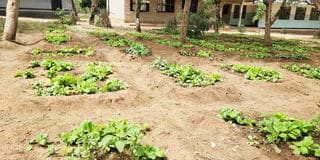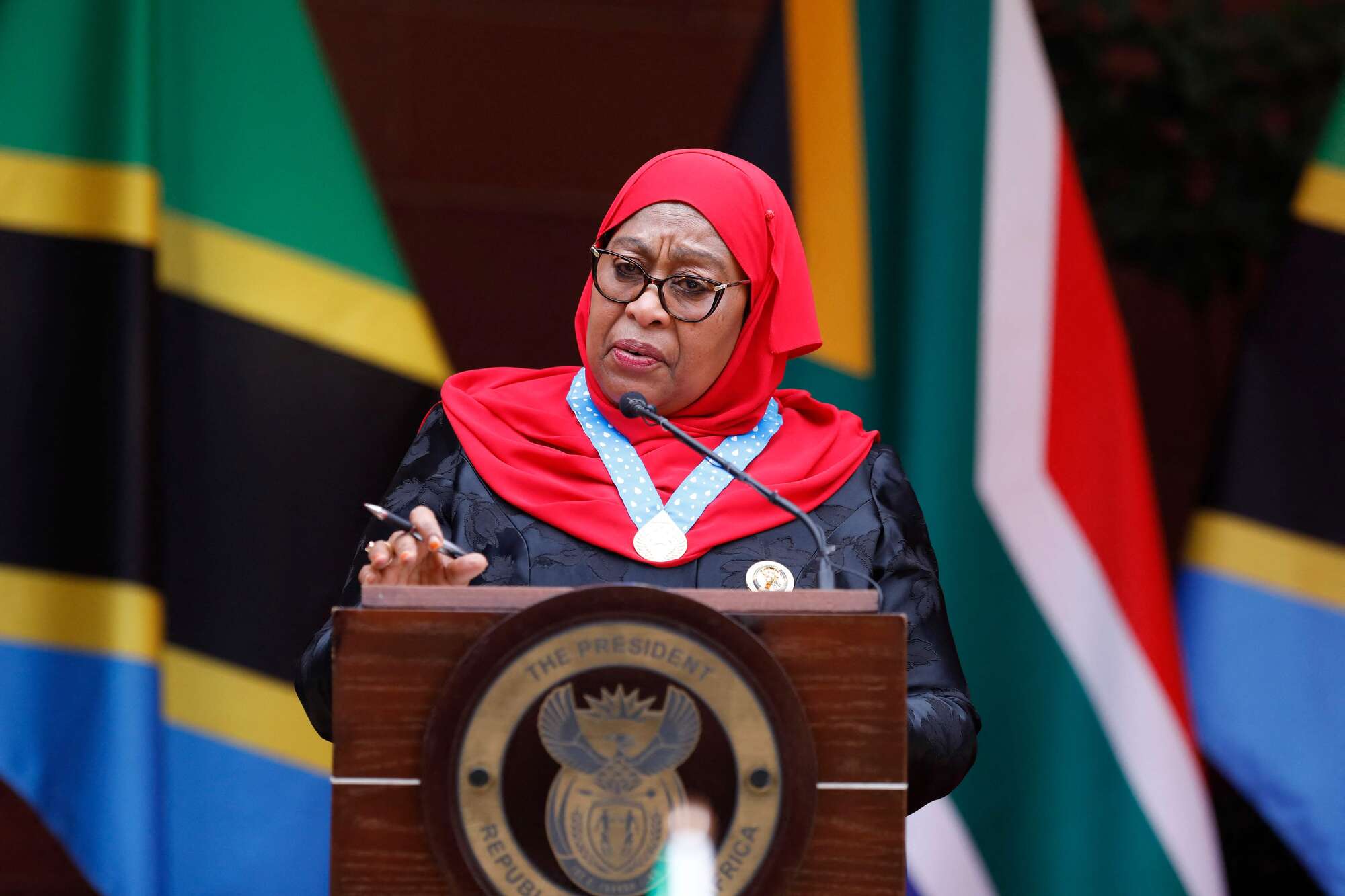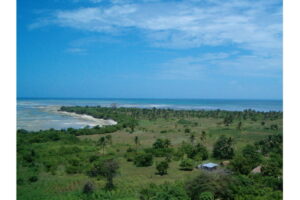Arusha/Manyara. Efforts are yielding success and revealing pathways within the community.
This sentiment suitably describes institutions that have garnered international recognition for their endeavours in assisting communities in the fight against climate change.
Beginning with the Tanzania Conservation and Community Empowerment Initiative (TACCEI), headquartered in Terrat village, Simanjiro district, in the Manyara region, these institutions are making significant strides.
TACCEI has earned acclaim from the Global Landscapes Forum’s (GLFx) network of chapters, specifically through the “Maasai Steppe chapter” programme.
The Citizen recently ventured to Simanjiro and engaged with TACCEI’s director, Justin Lukumay.
He highlighted the organisation’s focus on environmental conservation and community empowerment as crucial elements in combating the effects of climate change.
“In environmental conservation, there is a project involving tree planting within the community, particularly in schools. We provide education to students, and in collaboration with partners, we assist in planting various tree species,” stated Lukumay.
He also mentioned other projects, such as empowering village residents, especially women, to cultivate vegetables at the household level, which helps them earn income and provides vegetables for their families.
A vegetable garden planted by students at Terrat Secondary School, where the students also manage a nursery for indigenous trees with over 8,000 trees already planted and distributed to the communities. PHOTO | HALILI LETEA
At Terrat Secondary School, the headteacher, Julias Maplani, reported that after receiving education, they began tree planting in August 2023.
“We planted over 8000 trees of four different species, including native trees such as Vachellia tortilis (Migunga), Moringa oleifera (Milonge), Leucaena leucocephala (Lukina), and Acacia mellifera (Black thorn – Ngoja Kidogo),” he said.
The headteacher noted that the project is supervised, and trees are provided free to the community.
He added, “At the end of the year, when we closed school, each student was given five trees to plant at their homes.”
Among the tree garden supervisors is Neema Mindeli, a Form 3 student, who stated that the primary reason for planting such trees is because many of them are used as fodder for livestock and can withstand drought conditions.
Another Form 4 student, Toima Sanago, mentioned, “We continue to experiment with tree species that are suitable for our environment. Some of the species we started with didn’t thrive in our environment. The school has water and areas for establishing a tree garden, so this task is easy for us.”
Despite this, the school also boasts a large vegetable garden, which is utilised by students residing in the school dormitories, according to Form 3 student Neng’ida Isaya.
Neng’ida explained that after receiving education on vegetable cultivation, they implemented it.
“We have reduced our reliance on beans. Nowadays, we mix vegetables. We manage the garden ourselves.”
In collaboration with partners, Lukumay said they have expanded their initiatives to other schools in the region (the Maasai Steppe—pastoral lands) and are planning to reach ten schools in 2024.
In vegetable cultivation projects, I met Vailet Kidogo, a mother of five children.
“The knowledge we gained from preparing ridges that conserve water is used to grow vegetables even during the dry season,” she explained.
“I sell vegetables, buy school supplies and buy clothes for my children. I even assist my husband now. We used to only eat sardines and beans in the past, but it’s different now,” she added.
Lukumay stated that these projects are environmentally friendly, health-friendly, and eco-friendly and have assisted the citizens.
Other projects include the establishment of savings and loan groups and teaching entrepreneurial skills for environmentally friendly activities.
Here, we encounter a group of thirty women who are part of a lending group.
“We started with our own contributions of 2000 shillings each week and lending them to one person, but after receiving a capital injection of one million shillings, within four months, we now have two million shillings,” said Naurukoki Tauta, the group leader.
Another participant, Nalepo Saling’o, shared how she has expanded her gasoline-selling business from purchasing five litres to seventy litres per week.
“I also sell exercise books and pens. Now, I have reduced my reliance on my husband and can provide for my children,” she said.
Joshua Laizer, the Finance and Programme Officer of the Maasai Steppe chapter of TACCEI, mentioned that besides empowering women, their projects aim to restore native vegetation in the pastoral communities by increasing seedling nurseries from the existing two to six by the end of this year.
“In addition to providing education on planting native trees and empowering village committees in conservation and restoration efforts, we also educate herders on constructing modern livestock enclosures to reduce conflicts between wildlife and humans,” elaborated Laizer.

Tanzania Pastoral Women’s Council (PWC) Project Manager, Stella James (second from the right, behind the tree), conducts a climate adaptation training session for women in Losirwa village, Monduli district. This training includes water harvesting and conservation as well as the planting of grass for livestock. PHOTO | HALILI LETEA
PWC recognition by GCA
During the COP28 climate summit in Dubai, United Arab Emirates (UAE), in December 2023, the Global Centre on Adaptation (GCA) recognized the contributions of the Tanzania Pastoral Women’s Council (PWC).
The GCA awarded its director, Maanda Ngoitiko, in the Women in Leadership category for her efforts in enhancing the leadership capabilities of Indigenous pastoralist women and building their capacity to become decision-makers in pastoralist societies.
According to the GCA, the awards aim to acknowledge exemplary locally led initiatives addressing the impacts of climate change and fostering effective resilience.
PWC, operating in the pastoral lands of Monduli, Longido, and Ngorongoro districts, received the award from among more than 500 submitted applications.
Maanda Ngoitiko, the co-founder and executive director of PWC, stated, “Although both pastoralist men and women face equal exposure to climate shocks and stress, women have fewer opportunities to access and control productive resources.”
The Citizen visited Monduli and met with Stella James, who is the project manager at PWC. She mentioned that despite having numerous projects in the district, they have projects involving women’s groups focused on grass cultivation, lending, and water conservation.
“Our work involves providing education and establishing demonstration farms in collaboration with stakeholders, along with providing equipment based on the specific needs of the areas and the type of project,” she said.
She adds that they provide education on climate change and the environment while also empowering women in basic healthcare and reproductive health, as well as reporting gender-based violence.
Additionally, “we assist in improving access to water in these areas through solutions such as well drilling and rainwater harvesting.”
I met Dora Kilimbe in Monduli, one of the women in a group of 30 individuals engaged in grass cultivation and lending activities.
“We prepared the land provided by the village government. After receiving education, we dug an area in the shape of a crescent moon, which we were told could retain water for a long time,” explained Dora.
She added that since they planted the grass in August 2023 on a 14-hectare area, they have been able to harvest seeds and sell them and they expect to sell the grass during the dry season.
Stella noted that there are four grass cultivation groups in the district, with over 44 hectares planted and preserved.
In another area, I met Grace Issaya, who has a 10,000-litre water tank. “By storing water during the rainy season, it lasts for four to five months. Unlike in previous years, where water scarcity was a significant issue,” she said.
Grace, who is also the leader of the lending and savings group, mentioned that within the group, they lend each other money, and many engage in various entrepreneurial activities such as running shops, selling clothes, and buying food.
Supported by the Bill & Melinda Gates Foundation















